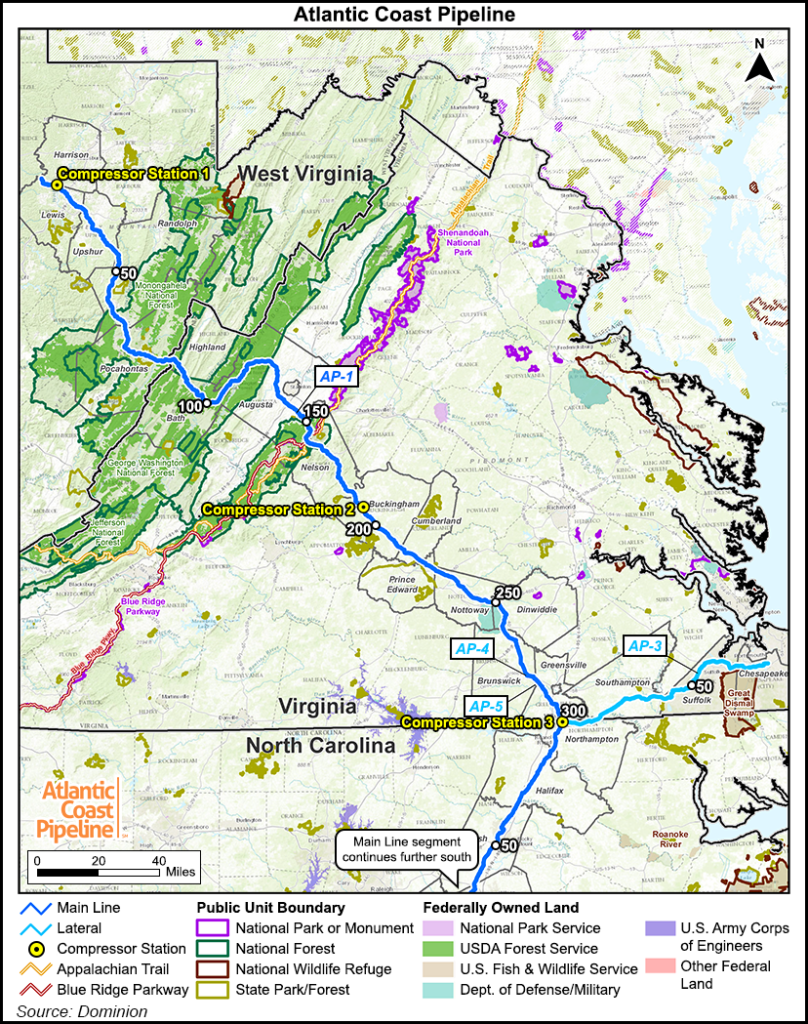Regulatory | Infrastructure | NGI All News Access
ACP Petitions Fourth Circuit for Rehearing in Ongoing Legal Saga
The U.S. Court of Appeals for the Fourth Circuit this week stayed a three-judge panel’s decision last month that invalidated federal authorizations for the Atlantic Coast Pipeline (ACP) to cross two national forests.

While the court’s decision to stay its own judgment is merely a procedural step, it’s the latest in an ongoing legal saga involving other cases that has brought all construction on the 600-mile project to a halt. The court stayed its judgment after ACP filed for a rehearing of the decision en banc, or before all of the court’s active judges. Lawyers for the pipeline said in their petition for rehearing that the court’s decision to vacate and remand the project’s special use permit and record of decision back to the U.S. Forest Service (USFS) to address a list of issues the judges raised will have “widespread ramifications” for the rest of the industry.
The court found last month that the USFS lacks statutory authority to grant ACP a right-of-way across the Appalachian Trail. The panel found that the agency violated the National Environmental Policy Act and the Administrative Policy Act, concluding that it acted “arbitrarily and capriciously” in authorizing ACP to cross the George Washington and Monongahela national forests.
“The panel’s novel holding means that on Forest Service land, which comprises half of the Trail’s 2,200-mile route, congressional authorization is required for a pipeline,” ACP said in its petition for rehearing. “The panel’s holding would imperil pipeline construction from Georgia to Maine, and would threaten approximately 56 existing pipelines, a number of which cross the trail on forest service land.”
While the December ruling only impacted a small segment of ACP, all construction had earlier been stopped after the Fourth Circuit in a separate case stayed the U.S. Fish and Wildlife Service’s revised biological opinion and modified incidental take statement for the project.
ACP spokesman Karl Neddenien said construction is still on hold. The court was forced to stay its decision to invalidate USFS authorizations after ACP filed a petition for rehearing en banc in a timely manner.
ACP would originate in West Virginia, pass through Virginia and into North Carolina to move 1.5 Bcf/d of Appalachian gas to the Southeast. The project, backed by Dominion Energy Transmission Inc., Duke Energy Corp., Piedmont Natural Gas and Southern Company Gas, is targeted to enter service in phases between this year and next.
© 2024 Natural Gas Intelligence. All rights reserved.
ISSN © 1532-1231 | ISSN © 2577-9877 |
